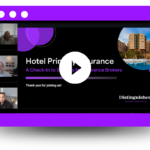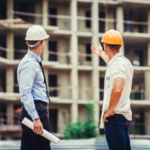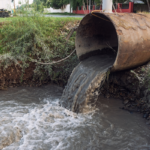How Hotels Are Securing Properties While Closed, Preparing for Re-opening
COVID-19 has hit few industries as hard as the hospitality sector with a large percentage of hotels temporarily closed while others have pivoted to provide services and emergency housing to healthcare workers and first responders. The industry will recover eventually as lockdown restrictions relax slowly across the country and we get back to business. In the meantime, hotels are securing their properties while the doors are shut and preparing for the time when guests and visitors will once again walk through their entryways.
For a downloadable guide to re-opening click here.
Preparing for the Rebound, Hotel Re-openings
As states begin to re-open essential businesses over the next several weeks and months, it’s important for hotels to prepare for the “new normal” amid the COVID-19 crisis and be ready to implement measures designed to keep employees and guests safe. Conduct a risk assessment to protect the health integrity of the hotel’s environment, determine COVID-19 best practices and protocols, and assign team members responsible for implementation and monitoring. Some specific measures for your insureds to implement include:
- Consider implementation of remote check-in or self-check-in from kiosks and using direct-to-room technology, if possible.
- Post signage to remind guests and workers to wash hands with soap and warm water frequently, for at least 20 seconds each time.
- Assess cleaning regimens to include deep cleaning and use of EPA-approved cleaning products from this list of disinfectants.
- Increase frequency of cleaning public areas; make available an ample amount of hand sanitizers in guest contact areas, such as hotel lobbies and conference spaces.
- Sanitize regularly with a focus on high-contact points: doors, handles, counter tops, vending machines, etc.
- Rearrange furniture in public areas to promote social distancing. Put markings on the floor to remind guests to remain six feet apart, and limit the number of guests in the lobby, elevators and other common areas.
- Keep drinking fountains closed; instead consider offering bottled water.
- Close public restrooms if possible. If they remain open, sanitize and scrub them frequently.
- Consider keeping the gym closed. If not, sanitize equipment after each use and add hand hygiene stations in the gym.
- Consider postponing offering valet service.
- Prior to re-opening, run water from all taps/showerheads or sources for at least 10 minutes. Legionella or other bacteria can build up in water (even in pipes) that sits stagnant. It’s necessary to flush these out thoroughly. Consider flushing/ hyperchlorination of water system and verify water chemistry is within acceptable parameters.
- Consider keeping swimming pools/hot tubs closed. If not, before re-opening, drain, disinfect and refill water features in the pools and hot tubs. These may not be an especially likely source of COVID-19 infection but sitting unused, especially if the chemicals were not being maintained on the normal schedule, other bacteria such as Legionella can proliferate.
- Shift from buffet-style service to bagged meals, and discontinue room service.
- Utilize disposable utensils and dishes wherever possible.
- Remove minibars, excess hangers, excess linens and pillows in guest rooms.
- Launder all fabrics in hot water and disinfectant; hotel blankets should all be laundered.
- Keep staff safe by providing masks, gloves and sanitizer. Housekeeping should always wear gloves when cleaning.
- Conduct regular training of employees to ensure proper hand hygiene and awareness of COVID-19. Be sure employees follow CDC guidelines to prevent the spread of the virus.
- Ensure staff is empowered to flag all areas of concern and have a common space to log the information.
- Consult with local and county health departments to determine appropriate actions if a guest or worker presents symptoms of COVID-19 disease, as well as how to respond if asked to quarantine guests.
As we enter a new phase and move forward, planning is required to help prevent the further spread of the coronavirus. The hotel industry is prepared to take the necessary measures to make guests feel comfortable and safe as traveling and hotel stays resume.
Sources: AWAC, CDC, EPA, HospitalityNet




